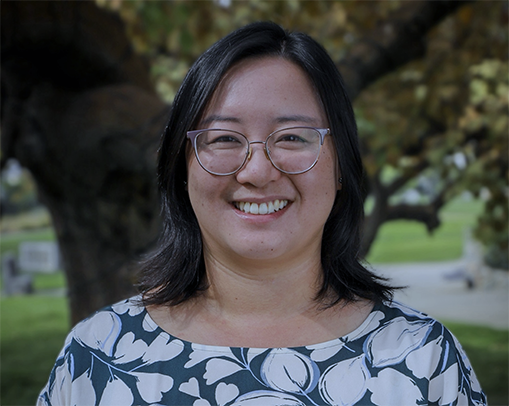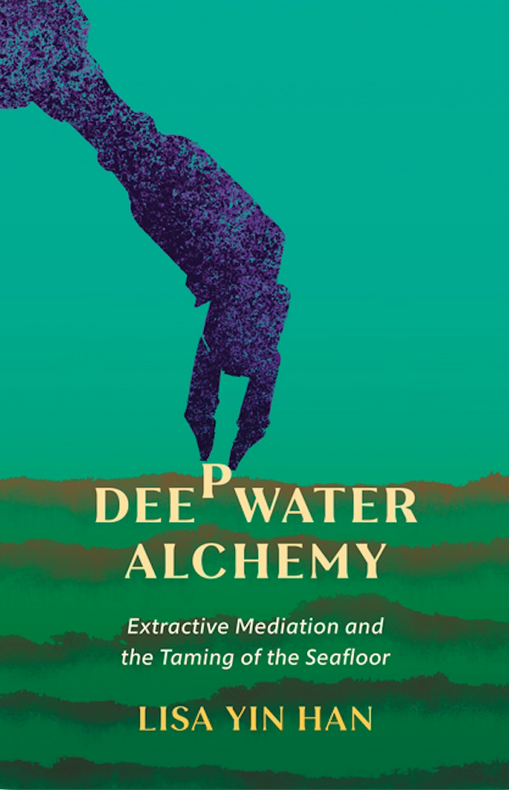
Fleck Prize 2025: Lisa Yin Han
The Society for Social Studies of Science (4S) has awarded the Ludwik Fleck Prize of 2024 to Lisa Yin Han for her book Deepwater Alchemy: Extractive Mediation and the Taming of the Sea Floor (2024).

Lisa Yin Han’s Deepwater Alchemy: Extractive Mediation and the Taming of the Sea Floor is a capaciously conceived account of the ways that the sea is known. Through a theoretically rich and empirically diverse analysis of deep-sea technologies—from sonar mapping to cetacean telemetry—Han explores how oceanic depths are rendered knowable, governable, and extractable through what she terms “extractive mediation.” While the book’s empirical focus may seem specialized—centered on deepwater environments—it speaks directly to core STS concerns with visualization, infrastructure, environmental mediation, and the politics of scientific knowledge. The book bridges media studies, feminist 
Statement
I am honored to receive the 2025 Ludwik Fleck Prize. I offer my deepest thanks to the Fleck Prize committee’s recognition and engagement with my work and for the generous community of scholars at 4S who have helped to inform this project from its beginnings. STS has been a core part of my research and teaching for many years, and I see this book as part of an ongoing conversation that includes many colleagues, friends, and interlocutors. I am humbled and grateful that the deep ocean can be brought into the same space of contemplation shared by so many former prize winners whose works have been formative to my writing and research.
Deepwater Alchemy is an exploration of what it means to produce knowledge and care for our deep ocean environments within a web of institutions and infrastructures that threaten and constrain our collective futures. By exploring the entanglements of deep sea media development with that of offshore extractive industries, it attempts to guide readers to situated and ethical perspectives on human-ocean relations, be it from the eyes of the oceanographer or the antennae of a hydrothermal vent shrimp. As our oceans are increasingly imperiled and under attack by anthropogenic forces, I hope this book can do its small part in promoting curiosity and care for our more-than-human environments. Thank you to all who have made this work possible, and to the activists, artists, and researchers who continue to fight for a better planetary future and inspire me to do the same.
Bio
Lisa Yin Han is an Assistant Professor of Media Studies at Pitzer College. Her research is situated at the intersections of environmental media studies, critical infrastructure studies, and science and technology studies. Her first book, Deepwater Alchemy: Extractive Mediation and the Taming of the Seafloor (University of Minnesota Press 2024), examines how media operations in deep ocean environments pave the way for extractive industry. She has also published work on environmental media in journals such as Resistance: A Journal of Radical Environmental Humanities, Configurations, and Media + Environment.
Honorable Mention
Lisa Messeri’s In the Land of the Unreal provides a vital account of virtual reality and social fragmentation. Drawing on immersive fieldwork among progressively inclined designers in the Los Angeles VR community, the book offers a novel analysis of technologies that promise to “repair reality” and promote empathy through the fantasy of virtual embodiment. With astutely observed examples and evocative concepts including “special affect” and “technological terroir,” In the Land of the Unreal is a timely intervention into discourses of truth, fractured publics, and what it means to design technology “for good.” Messeri’s elegant and lucid prose is accessible to an interdisciplinary audience without diluting complexity. While the empirical focus is more localized and culturally embedded than some of the more planetary works under review, In the Land of the Unreal powerfully extends the field into the realm of immersive media and speculative futures. It reminds us that science and technology are not only infrastructures and policies but also stories we tell and experiences we try to feel.
Finalists
- Hecht, Gabrielle. Residual Governance: How South Africa Foretells Planetary Futures. Durham, NC: Duke University Press, 2023.
- Müller, Simone M. The Toxic Ship: The Voyage of the Khian Sea and the Global Waste Trade. Seattle: University of Washington Press, 2023.
- Rodenbiker, Jesse. Ecological States: Politics of Science and Nature in Urbanizing China. Ithaca, NY and London: Cornell University Press, 2023.
- Steingart, Alma. Axiomatics: Mathematical Thought and High Modernism. Chicago: University of Chicago Press, 2023.
Fleck Committee 2025: Anne Pollock, Chair, Shannon Cram, Pouya Sepehr, and Shiv Issar
